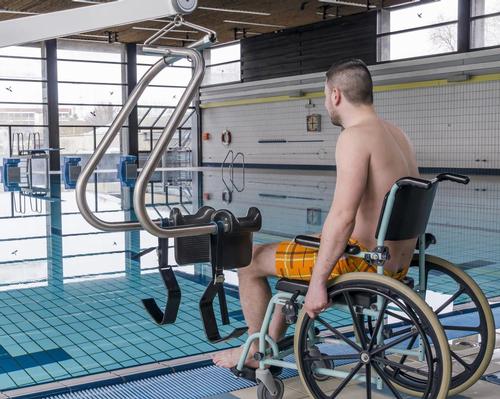09 Apr 2019
Accessibility: DDA compliance is 'not necessarily' enough
BY Andy Knaggs

Compliance with DDA (Disability Discrimination Act 2005) regulations does not always make a sports facility fully accessible, according to Kevin Wright, manager of Edinburgh Napier University’s [EN]GAGE facility.
Wright made the observation in Sports Management’s feature on accessibility (issue 4 2018), in which he reflected upon the importance of undergoing the Activity Alliance’s Inclusive Fitness Initiative ‘IFI Mark’ Accreditation in 2017. The facility has also achieved an ‘Excellent’ rating in Engaging with Disabled People and People with long term Health Conditions in Sport England’s Quest programme for quality assurance and continuing development.
“The tenders continually mentioned DDA compliance, but in my experience that doesn’t necessarily make an area accessible,” Wright told SM. “So it was eye-opening going through the IFI element of Quest, looking at every aspect of the customer journey, right down to how they travel to us, and this is something we’ve used in broader terms for the whole university too.”
Also featured in the accessibility article was SportsAble, a multi-sports club dedicated to giving people in Berkshire with a sensorial or physical disability the chance to enjoy quality, coached sport and physical activity sessions.
Its chief executive officer Kerl Haslam outlined the change of strategy that saw the club grow its membership, taking a more community-outreach based approach, rather than targeting individuals.
“This has been a more effective use of resources,” said Haslam. “For example, we’ve partnered with two local hospitals via the NHS Frimley Health Foundation Trust. Recent amputee patients are now referred to SportsAble to play wheelchair basketball as part of their rehabilitation. Once here, they’re introduced to our whole range of sports and many patients have since joined the club.”
Further examples are a school outreach programme offering nine to 13-year-olds with an impairment the opportunity to play adaptive sport, both at school and at SportsAble, and invitations to other charities to use SportsAble’s facilities for a nominal fee, in return for actively promoting the sports charity.
It has proved a highly successful way to recruit new joiners, despite the issues disabled people face with travel, Haslam added, pointing out that 25per cent of members travel more than 10 miles to get to SportsAble.
To read the full article see Issue 4 2018 of Sports Management here
Close Window